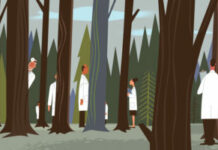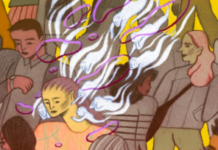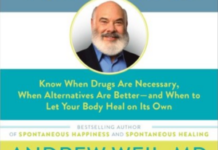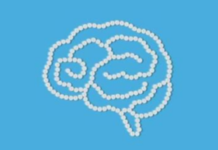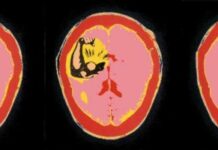People Are Hacking Antidepressant Doses to Avoid Withdrawal
From New Scientist: Some organizations are helping people hack their dosing regimens so they can taper off psychiatric drugs without severe withdrawal effects. One Dutch organization...
Research Suggests that Forensic Psychological Examinations are Unreliable and Biased
Concerns have been raised about inconsistent and unreliable results, which may lead to injustices in sentencing or even wrongful convictions.
This is the Truth About Personality Disorders
From The Independent: Armchair diagnoses of personality disorders are a rising trend, from speculations that President Trump has narcissistic personality disorder to viral articles about discerning...
Why Disclosure Policies Don’t Discourage Drug Salesmen
From The Chronicle: The practice of pharmaceutical industry payments to academic researchers to help promote their drugs remains widespread. Requiring scientists to disclose their ties...
Researchers Discuss the Strengths of Children who Face Adversity
Experiencing adversity may result in the development of unique strengths and abilities that are often overlooked.
Inequality is Bad For Your Health
From Pacific Standard: In a recent study featuring a group of American twins, twins who experienced greater levels of inequality showed more physiological signs of...
When Anxiety or Depression Masks a Medical Problem
From The New York Times: The mind and body are more connected than we often think — symptoms of anxiety and depression may result from...
“I Cried Every Day at Work”: Mental Health Among Doctors
From The Guardian: Doctors are increasingly experiencing mental health issues due to the unrelenting pressure, inhumane working hours, brutal competition, and workplace bullying that is...
Psychics Who Hear Voices Could Be on to Something
In this piece for The Atlantic, Joseph Frankel compares and contrasts the voice-hearing experiences of self-described psychics and mediums with the experiences of people diagnosed with...
LGBT Pride and the Soul: An Essay by Edward Santana
From Routledge: In his recent book Jung and Sex, Edward Santana explores the role that therapists can play in illuminating and deepening human complexities as well as addressing the...
Human Jobs in the Future Will Require Emotional Labor
From Aeon: As technological change reduces the demand for human jobs in scientific and cognitive fields such as software engineering, biotechnology, and advanced manufacturing, future...
Dr. Andrew Weil Says We’re Taking Too Many Medicines
From The New York Times: According to Dr. Andrew Weil, who is best known for popularizing the concept of integrative medicine, the problem of overmedication...
Calling it “Brain Disease” Makes Addiction Harder to Treat
From The Boston Globe: Conceptualizing addiction as a biological brain disease is often ineffective, as the biological model overlooks the important psychological and social factors that...
How Love, Support, and Exercise Build Resilience After Trauma
In this piece for ABC News, Farz Edraki and Lucy Fahey present five stories of people who have recovered from traumatic events through various means,...
Yoga and Meditation Can Change Your Genes, Study Says
From TIME: A new scientific review suggests that yoga, meditation, and other mindfulness activities can reverse stress-related changes in genes linked to health problems and...
African American and Hispanic Youth Discontinue ADHD Treatment at Higher Rates than White Youth
Study examines racial and ethnic disparities in the quality of care for Medicaid-enrolled children starting ADHD medication.
Psychologists Open a Window on Brutal C.I.A. Interrogations
From The New York Times: Two psychologists, Drs. John Bruce Jessen and James Mitchell, who played a role in developing C.I.A. interrogation techniques widely viewed as...
Unanswered Questions in New Mental Health Screening Program for Children
An article presents new screening tools for pediatric depression and anxiety—but fails to answer its own questions about efficacy.
Schizophrenia Deconstructed
After a few weeks it became clear to me the complete lack of comprehension that I faced as a person claiming to have been cured of psychosis. Being a schizophrenic claiming to no longer suffer from schizophrenia only made me seem more schizophrenic due to the current culture of psychiatry.
Power Causes Brain Damage
From The Atlantic: New research suggests that power may impair neural processes involved in feeling empathy and understanding others' perspectives. Recalling experiences of powerlessness can help...
Remembering the Murder You Didn’t Commit
In this piece for The New Yorker, Rachel Aviv investigates how a psychologist and deputy sheriff convinced several suspects that they committed a murder, for which...
Women are Flocking to Wellness due to Sexism in Healthcare
From Quartz: Seeking healthcare in the medical system can be a dehumanizing experience for women: doctors often dismiss women's pain as psychological rather than physiological, and...
Psychological Research Fails to Capture Human Diversity, Researchers Call for Action
Data demonstrate an overreliance of non-representative and non-diverse sampling biases in psychological research.
When Neurology Becomes Theology
In this piece for Nautilus, Robert A. Burton discusses how research into the essence of consciousness is more of a theological, religious exploration than a neurological...
Talking Madness With Robert Whitaker
On Friday, June 9th, Robert Whitaker participated in a discussion with Lois Holzman about psychiatry, the medicalization of distress, and alternative practices. Click here to...







